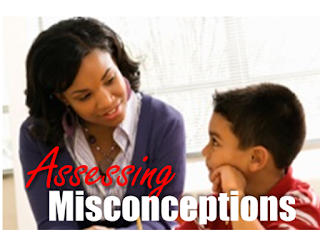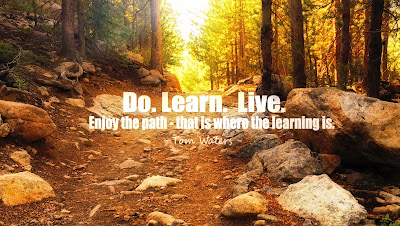Listening, Possibly the Best Formative Assessment
Three days into the unit, and we have no clue if the students understand it or not. What do we do? We design a quick quiz to give to them right? A quiz will tell us whether they know it or not. Or does it?
Limitations of a Quiz
Does a quiz really expose the missing gaps in student understanding? Can a quiz expose the misconceptions? It probably can tell you the factual knowledge they can recall. It probably can tell you if they can identify correct understandings. Properly designed, it might even force higher level analysis. But it probably doesn't tell you their misunderstandings. To do that, the quiz would need to be open-ended written responses. But that's a large time investment.

So quick quizzes are limited because they are looking for correct answers, not misconceptions. And addressing misunderstanding is one of the most critical purposes of instruction. It is necessary for ensuring long-term student success. Misconceptions can seriously undermine future learning.
There may just be a better formative assessment...without reading through hours of open-ended written responses.
Sample to Find Misconceptions
Since we aren't taking the formative assessment for a grade, we don't have to test every student's understanding . We can sample. It's simple, and it lets you know an estimate of how the group is doing. Or, really, how you're doing.
Randomly choose one student out of every four or five. Go to the students and ask them two or three of your essential questions. I promise you'll be surprised at the misconceptions that are in students minds. Often these misconceptions do not show up on a quiz. This is especially true if the quiz is multiple choice, and the right answer is in front of them. Their misconceptions are exposed when they have to explain the content to you.
Listen with Essential Questions
Very quickly trends and patterns of misconceptions can develop by only asking questions of 4-5 students in your class. This will give you the most valuable information you need to plan the rest of the unit. It will expose any gaps in your previous instructions, and it will guide you on where you need to build your next layers of instruction.
Next time you're starting a new unit, and you're a few days in, listen. Whenever you want to know if they understand it, listen. It might just be the best formative assessment you've ever done.
- Read here to find out what happens when EdLeaders overuse and misuse data.
- And how academic vocabulary is an excellent tool for measuring growth.



Comments
Post a Comment
What are your thoughts?